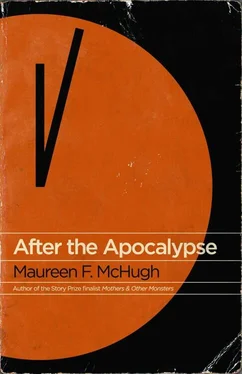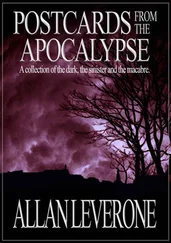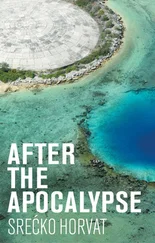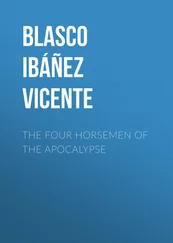“So, maybe you have an anticorruption investigation?” Jieling said. There were lots of anticorruption investigations. Jieling’s stepfather said that they usually meant someone powerful was mad at their brother-in-law or something, so they accused them of corruption.
Mr. Wei groaned. “There is no one to investigate them.”
Baiyue and Jieling looked at each other.
Mr. Wei explained, “In my office, the Guangdong office, there used to be twenty people. Special operatives. Now there is only me and Ms. Yang.”
Jieling said, “Did they all die of bird flu?”
Mr. Wei shook his head. “No, they all went to work on contract for Saudi Arabia. You can make a lot of money in the Middle East. A lot more than in China.”
“Why don’t you and Ms. Yang go work in Saudi Arabia?” Baiyue asked.
Jieling thought Mr. Wei would give some revolutionary speech. But he just hung his head. “She is the secretary. I am the bookkeeper.” And then, in a smaller voice, “She is going to Kuwait to work for Mr. Liu.”
They probably did not need bookkeepers in the Middle East. Poor Mr. Wei. No wonder he was such a terrible secret agent.
“The spirit of the revolution is gone,” he said, and there were real, honest-to-goodness tears in his eyes. “Did you know that Tiananmen Square was built by volunteers? People would come after their regular jobs and lay the paving of the square. Today people look to Hong Kong.”
“Nobody cares about a bunch of old men in Beijing,” Baiyue said.
“Exactly! We used to have a strong military! But now the military is too worried about their own factories and farms! They want us to pull out of Tajikistan because it is ruining their profits!”
This sounded like a good idea to Jieling, but she had to admit, she hated the news, so she wasn’t sure why they were fighting in Tajikistan anyway. Something about Muslim terrorists. All she knew about Muslims was that they made great street food.
“Don’t you want to be patriots?” Mr. Wei said.
“You broke into my room and tried to steal my—you know that’s not a computer, don’t you?” Jieling said. “It’s a bio-battery. They’re selling them to the Americans. Wal-Mart.”
Mr. Wei groaned.
“We don’t work in special projects,” Baiyue said.
“You said you did,” he protested.
“We did not,” Jieling said. “You just thought that. How did you know this was my room?”
“The company lists all its workers in a directory,” he said wearily. “And it’s movie night, everyone is either out or goes to the movies. I’ve had the building under surveillance for weeks. I followed you to the market today. Last week it was a girl named Pingli, who blabbed about everything, but she wasn’t in special projects.
“I put you on the bus; I’ve timed the route three times. I should have had an hour and fifteen minutes to drive over here and get the box and get out.”
“We made all our connections,” Baiyue explained.
Mr. Wei was so dispirited he didn’t even respond.
Jieling said. “I thought the government was supposed to help workers. If we get caught, we’ll be fined, and we’ll be deeper in debt.” She was just talking. Talking, talking, talking too much. This was too strange. Like when someone was dying. Something extraordinary was happening, like your father dying in the next room, and yet the ordinary things went on, too. You made tea, your mother opened the shop the next day and sewed clothes while she cried. People came in and pretended not to notice. This was like that. Mr. Wei had a gun, and they were explaining about New Life.
“Debt?” Mr. Wei said.
“To the company,” she said. “We are all in debt. The company hires us and says they are going to pay us, but then they charge us for our food and our clothes and our dorm, and it always costs more than we earn. That’s why we were doing rap today. To make money to be able to quit.” Mr. Wei’s glasses had tape holding the arm on. Why hadn’t she noticed that in the restaurant? Maybe because when you are afraid, you notice things. When your father is dying of the plague, you notice the way the covers on your mother’s chairs need to be washed. You wonder if you will have to do it, or if you will die before you have to do chores.
“The Pingli girl,” he said, “she said the same thing. That’s illegal.”
“Sure,” Baiyue said. “Like anybody cares.”
“Could you expose corruption?” Jieling asked.
Mr. Wei shrugged, at least as much as he could in the pillowcase. “Maybe. But they would just pay bribes to locals, and it would all go away.”
All three of them sighed.
“Except,” Mr. Wei said, sitting up a little straighter. “The Americans. They are always getting upset about that sort of thing. Last year there was a corporation, the Shanghai Six. The Americans did a documentary on them, and then Western companies would not do business. If they got information from us about what New Life is doing …”
“Who else is going to buy bio-batteries?” Baiyue said. “The company would be in big trouble!”
“Beijing can threaten a big exposé, tell the New York Times newspaper!” Mr. Wei said, getting excited. “My Beijing supervisor will love that! He loves media!”
“Then you can have a big show trial,” Jieling said.
Mr. Wei was nodding.
“But what is in it for us?” Baiyue said.
“When there’s a trial, they’ll have to cancel your debt!” Mr. Wei said. “Even pay you a big fine!”
“If I call the floor auntie and say I caught a corporate spy, they’ll give me a big bonus,” Baiyue said.
“Don’t you care about the other workers?” Mr. Wei asked.
Jieling and Baiyue looked at each other and shrugged. Did they? “What are they going to do to you, anyway?” Jieling said. “You can still do big exposé. But that way we don’t have to wait.”
“Look,” he said, “you let me go, and I’ll let you keep my money.”
Someone rattled the door handle.
“Please,” Mr. Wei whispered. “You can be heroes for your fellow workers, even though they’ll never know it.”
Jieling stuck the money in her pocket. Then she took the papers, too.
“You can’t take those,” he said.
“Yes I can,” she said. “If after six months, there is no big corruption scandal? We can let everyone know how a government secret agent was outsmarted by two factory girls.”
“Six months!” he said. “That’s not long enough!”
“It better be,” Jieling said.
Outside the door, Taohua called, “Jieling? Are you in there? Something is wrong with the door!”
“Just a minute,” Jieling called. “I had trouble with it when I came home.” To Mr. Wei she whispered sternly, “Don’t you try anything. If you do, we’ll scream our heads off, and everybody will come running.” She and Baiyue shimmied the pillowcase off of Mr. Wei’s head. He started to stand up and jerked the boom box, which clattered across the floor. “Wait!” she hissed and untied him.
Taohua called through the door, “What’s that?”
“Hold on!” Jieling called.
Baiyue helped Mr. Wei stand up. Mr. Wei climbed onto the desk and then grabbed a line hanging outside. He stopped a moment as if trying to think of something to say.
“‘A revolution is not a dinner party, or writing an essay, or painting a picture, or doing embroidery,’” Jieling said. It had been her father’s favorite quote from Chairman Mao. “‘… it cannot be so refined, so leisurely and gentle, so temperate, kind, courteous, restrained and magnanimous. A revolution is an insurrection, an act by which one class overthrows another.’”
Mr. Wei looked as if he might cry, and not because he was moved by patriotism. He stepped back and disappeared. Jieling and Baiyue looked out the window. He did go down the wall just like a secret agent from a movie, but it was only two stories. There was still the big footprint in the middle of Taohua’s magazine, and the room looked as if it had been hit by a storm.
Читать дальше












